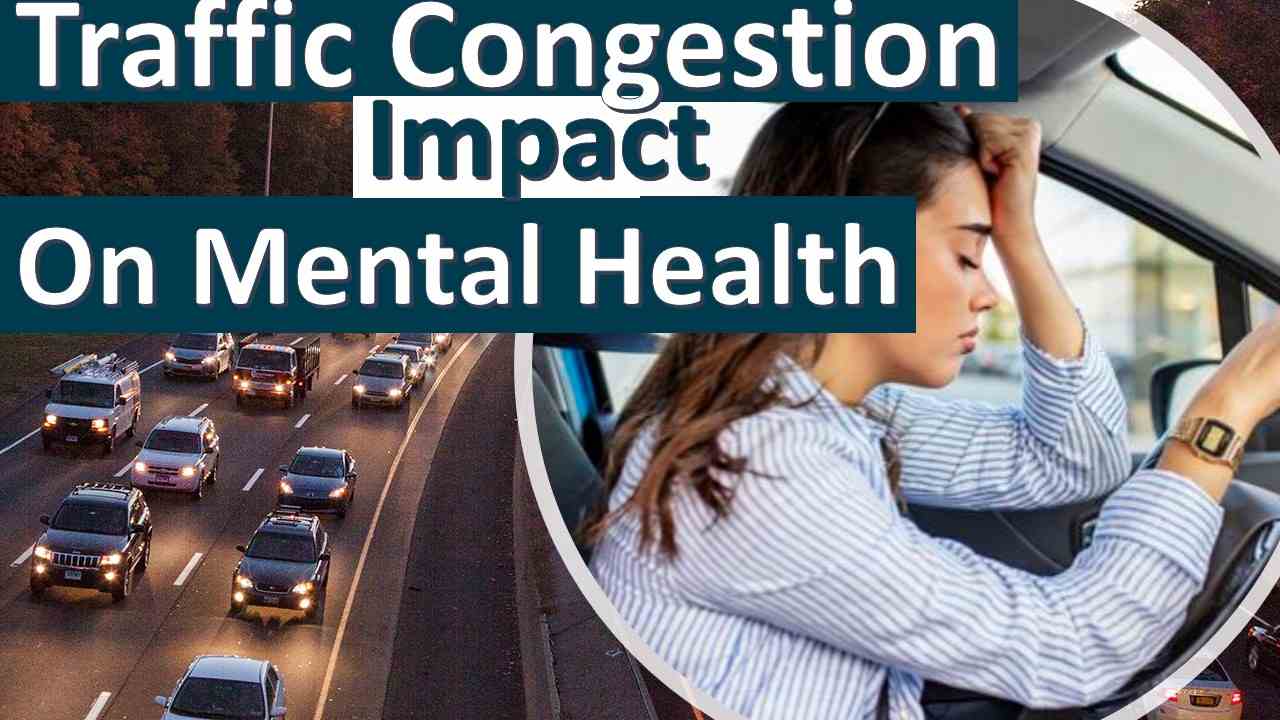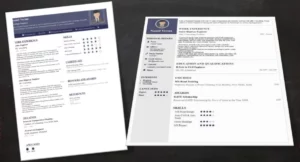Impact of Traffic Congestion on Mental Health
- By
- Pooja |
- February 25, 2024 |
- Civil Engineering, Traffic Engineering,

Table of Contents
The pervasive issue of traffic congestion is more than just a logistical challenge; it extends its reach into the realm of mental health, unravelling a complex connection that affects individuals on a profound level. The daily grind of navigating through congested roadways, enduring delays, and coping with the unpredictability of travel exerts a toll on the psychological well-being of commuters. The stress induced by traffic congestion has been associated with heightened levels of anxiety and frustration, contributing to a decline in mental health.
Numerous mental health issues, such as increased irritability, fatigue, and a sense of helplessness, have been linked to prolonged exposure to traffic-related stressors. Suburbanites end up wrestling with a remarkable type of constant pressure that emerges from the wild idea of traffic conditions. The steady expectation of postponements and the strain to stick to tight timetables make a favourable place for uplifted pressure reactions.
Besides, the adverse consequence of gridlock on psychological well-being isn't restricted to the span of the drive alone. Studies suggest that the remaining pressure from traffic-related encounters can wait, influencing people even after they have arrived at their objections. The combined impact of day-to-day openness to clog-related stressors highlights the requirement for an extensive comprehension of the many-sided connection between traffic designs and mental prosperity. As metropolitan regions keep on wrestling with heightening blockage challenges, tending to emotional wellness suggestions becomes central for encouraging a more reasonable and merciful living climate.
Stress and Anxiety:
Prolonged exposure to traffic congestion has emerged as a significant contributor to heightened stress and anxiety levels, exerting a substantial impact on mental well-being. Commuters navigating congested roadways often find themselves immersed in a high-stress environment characterized by unpredictability and delays. The chronic nature of this stressor creates a sustained psychological burden that can manifest in various ways, negatively influencing mental health.
One prominent effect of prolonged traffic congestion is an increase in anxiety levels. The uncertainty associated with congested roads, where travel times are unpredictable and delays are commonplace, can induce a persistent state of apprehension among commuters. The constant need to navigate through congested traffic conditions adds a layer of stress that extends beyond the physical act of driving. For example, individuals may experience anticipatory anxiety, fearing the potential for delays and disruptions even before embarking on their journeys.
Moreover, the frustration and helplessness experienced during prolonged traffic congestion contribute significantly to stress levels. Being stuck in traffic, especially during rush hours, often leads to feelings of powerlessness and irritation. Commuters may find themselves trapped in a situation where they have little control, unable to escape the gridlock. These emotions can accumulate over time, leading to chronic stress that permeates various aspects of an individual's life.
Real-world examples further illustrate the impact of traffic-induced stress on mental health. Commuters spending hours in traffic to reach workplaces or attend to daily responsibilities may face challenges in maintaining a healthy work-life balance. The stress from traffic congestion can spill over into professional and personal domains, affecting productivity, relationships, and overall well-being.
In essence, prolonged exposure to traffic congestion is a significant contributor to heightened stress and anxiety levels, with implications extending beyond the immediate commuting experience. Recognizing the intricate connection between traffic patterns and mental health is crucial for developing holistic strategies that prioritize the well-being of individuals in urban environments grappling with congestion challenges.
Read More:
Time Management Strategies:
Navigating through traffic congestion can be a daily challenge that takes a toll on one's time and mental well-being. However, implementing effective time management strategies can transform the commuting experience and mitigate the stress associated with traffic delays.
One key strategy is to embrace flexible scheduling when possible. Commuters can explore options such as staggered work hours or telecommuting, allowing them to avoid peak traffic times altogether. Flexibility in work arrangements not only reduces the time spent in congestion but also provides individuals with a sense of control over their schedules.
Additionally, optimizing the commute by turning it into a productive or enjoyable time can make a significant difference. Leveraging technology to access audiobooks, podcasts, or educational materials turns the daily commute into an opportunity for learning and personal growth. Alternatively, creating a playlist of favorite music or engaging in mindfulness exercises can help commuters relax and alleviate stress during the journey.
Another effective time management strategy involves utilizing navigation apps with real-time traffic updates. These apps provide alternative routes based on current traffic conditions, enabling commuters to make informed decisions and potentially avoid congested areas. Planning ahead and staying informed empower individuals to proactively address challenges, minimizing the frustration associated with unexpected delays.
Carpooling or using public transportation is an eco-friendly and time-saving approach that not only reduces individual stress but also contributes to alleviating overall traffic congestion. Commuters can explore shared transportation options, fostering a sense of community while making their daily journeys more efficient.
Moreover, adopting a positive mindset and reframing the perception of commuting as an unavoidable part of the day can significantly impact stress levels. Rather than viewing traffic as a hindrance, individuals can focus on aspects within their control, such as personal growth, relaxation, or even enjoying the scenery during the commute.
In conclusion, effective time management strategies empower commuters to reclaim control over their daily routines, transforming the challenging experience of traffic congestion into an opportunity for productivity, relaxation, and personal enrichment.
Urban Planning Solutions:
Tending to metropolitan gridlock requires insightful metropolitan arranging answers to make more feasible and effective transportation frameworks. One key mediation is the improvement of a vigorous public transportation foundation. Putting resources into dependable and broad public travel networks urges individuals to decide on mass travel, lessening the dependence on individual vehicles and easing blockage on streets.
Another important part of urban planning is putting smart traffic management systems in place. Trend-setting innovations, for example, versatile traffic light control and clever transportation frameworks, can streamline traffic streams, decrease bottlenecks, and upgrade general transportation proficiency. These frameworks use ongoing information to progressively change traffic light timings and deal with the development of vehicles, guaranteeing a smoother course through metropolitan regions.
Advancing elective methods of transportation, like cycling and strolling, through the production of devoted paths and person-on-foot amicable zones, adds to decreasing both blockage and fossil fuel byproducts. Coordinating blended-use improvements that consolidate private, business, and sporting spaces limits the requirement for broad travel, cultivating a more supportable and interconnected metropolitan climate.
What's more, carrying out blockage valuing techniques, where expenses are charged in light of the hour of the day or explicit zones, can boost people to pick elective transportation choices or travel during off-top hours, in this way alleviating clogs. Cooperative endeavours between metropolitan organizers, policymakers, and the local area are fundamental for creating far-reaching arrangements that address the complex difficulties of metropolitan blockage and make decent, strong urban communities for what's in store.
Please feel free to like, share and comment.
Admin, gcelab.com Please see our Pillar Post to know why we founded gcelab.com.
Read More:
-
The Future is Here: Embracing Autonomous Vehicles in Transportation
-
Smart Parking Solutions: Revolutionizing Urban Mobility and Convenience

Pooja
Founder at gcelab.com, Pooja is an Entrepreneur unlocking human potential. Working in the Principles of Lean Start-up, Pooja believes in Transparency and User Happiness the most. Pooja’s background in teaching gives her a sophisticated grasp on even the most tedious aspect of course building. She is passionate about people who believe that good is not enough.


